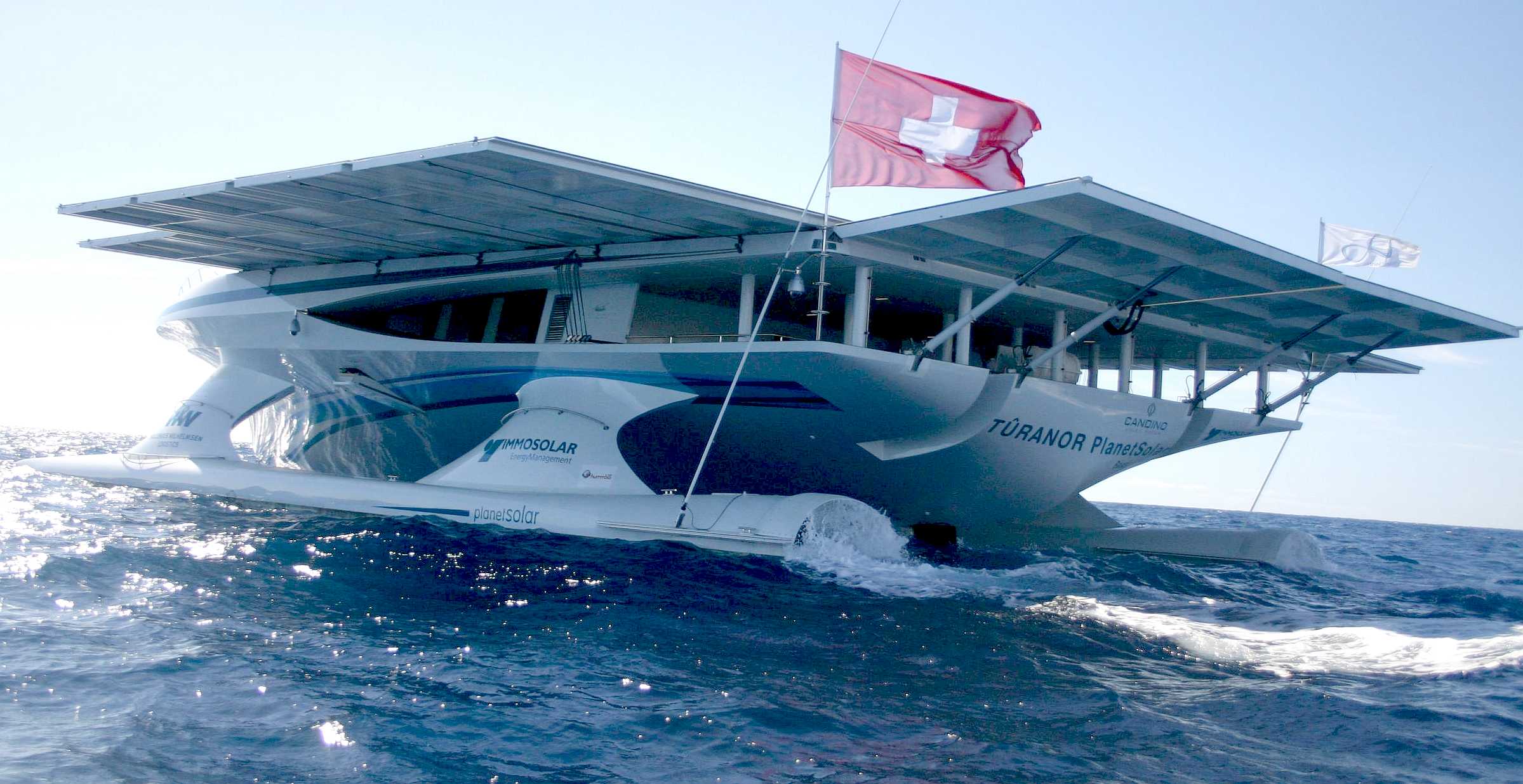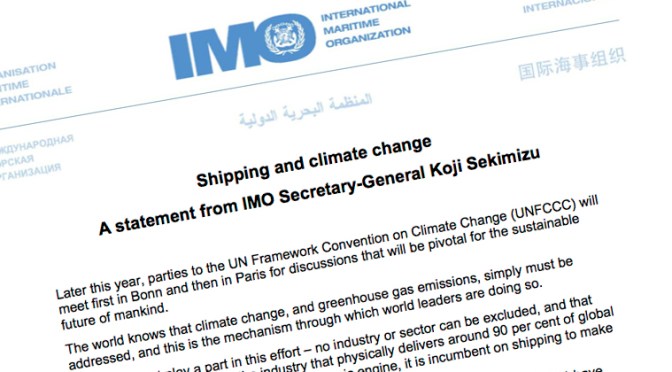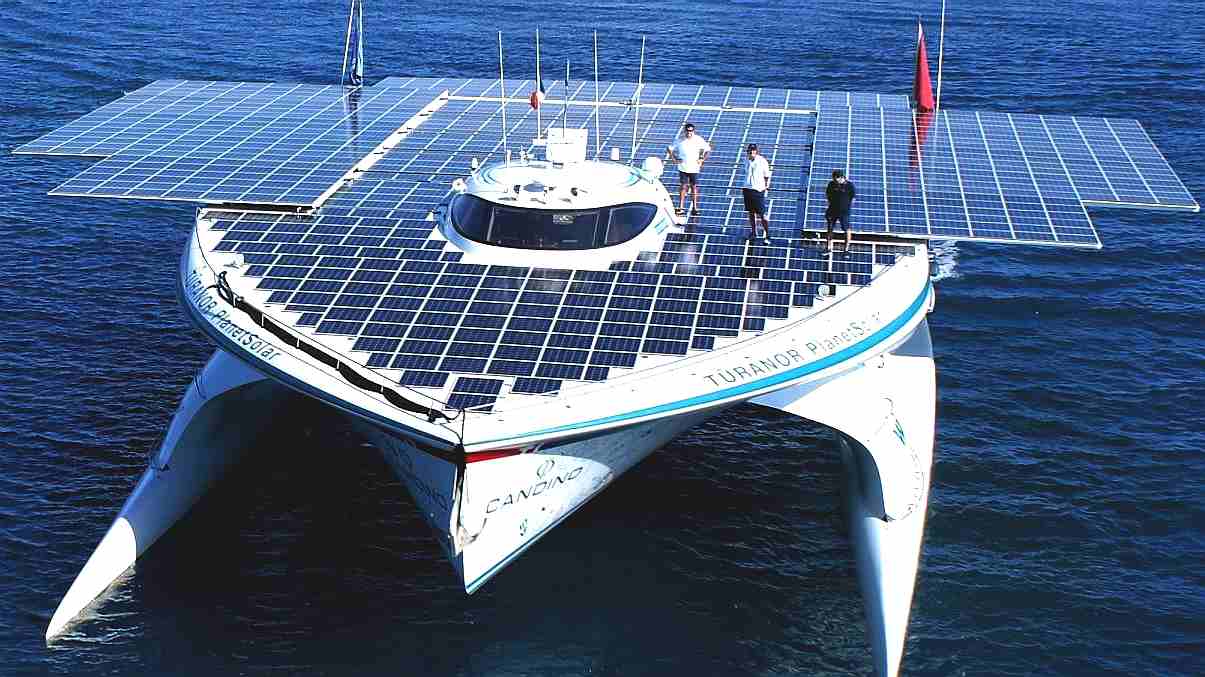|
MARINE ENVIRONMENT PROTECTION COMMITTEE
Please use our A-Z INDEX to navigate this site or return HOME
|
|
PlanetSolar is a rare animal, a zero carbon boat that contributes to zero emission objectives, but attracts no carbon credits. Similar projects with higher commercial expectations in reducing fleet emissions, also fall at the first hurdle in UN certificate terms. But projects to plant trees or change from coal to solar or wind generation pass with flying colours.
45th session
- Agenda item 8 MEPC 45/8/3 - 27 July 2000
In
consideration of an IMO strategy for greenhouse gases reduction. The Conference of Parties to MARPOL 73/78 held in 1997, adopted
resolution 8, which invited the Committee to consider what CO2 reduction strategy may be feasible.
2 The Conference adopted Resolution 8 by which it:
.1 invited the Secretary-General of the Organization to co-operate with the Executive
.2 invited the Organization, in co-operation with the UNFCCC, to undertake a study of
.4 urged Member States of the Organization to participate in the study on CO2 emissions referred to above and propose any appropriate strategies to the Marine Environment Protection Committee.
3 The Third Conference of Parties to UNFCCC was held in December 1997 in Kyoto, Japan.
The Conference resulted in a consensus decision (1/CP.3) to adopt a Protocol under which industrialised countries will reduce their combined greenhouse gas emissions by at least 5% compared to 1990 levels by the period 2008 - 2012. This legally binding commitment promises to produce an historic reversal of the upward trend in emissions that started in these countries some 150 years ago.
4 Article 2, paragraph 2 of the Kyoto Protocol states that "the Parties included in Annex I shall pursue the limitation or reduction of greenhouse gases not controlled by the Montreal Protocol from aviation and marine bunker fuels, working through the International Civil Aviation Organization and the International Maritime Organization, respectively".
5 In view of resolution 8, adopted by the Conference of Parties to MARPOL 73/78, and taking into account the Kyoto Protocol to UNFCCC, the Committee at its forty-second session, agreed to invite the Secretariat of IMO to undertake a study concerning greenhouse gas emissions from ships by engaging a consultant qualified in the relevant subject areas. The final report on the outcome of the Study has been submitted to this session of the Committee under the cover of document MEPC 45/8.
6 With regard to co-operation between the Secretariats of IMO and UNFCCC, which has been formalised by exchange of letters between the Secretary-General of IMO and the Executive Secretary of UNFCCC and the exchange of relevant information related to greenhouse gas emissions between the two Secretariats, the co-operation is now routine. A status of the co-operation is reported to the Committee in document MEPC 45/8/2.
7 Under UNFCCC the issue related to emissions based on fuel oil sold to ships engaged in international transportation, is under consideration by the Subsidiary Body for Scientific and Technological Advice (SBSTA). At MEPC 44 a representative of the UNFCCC provided information on:
.1 difficulties experienced by a large number of countries in reporting the appropriate
.2 considerations by UNFCCC on how international emissions in the future may be
.3 the continuation and additional possibilities of co-operation between the secretariats
Action requested of the Committee
9 The Committee is invited to note the above and take action as appropriate.
CARBON
TRADING OFFSETS IMO
MARINE ENVIRONMENT PROTECTION
LINKS & REFERENCE
https://ec.europa.eu/clima/policies/ets/registry_en
|
|
|
Please use our A-Z INDEX to navigate this site
This website is Copyright © 2021 Jameson Hunter Ltd
|


